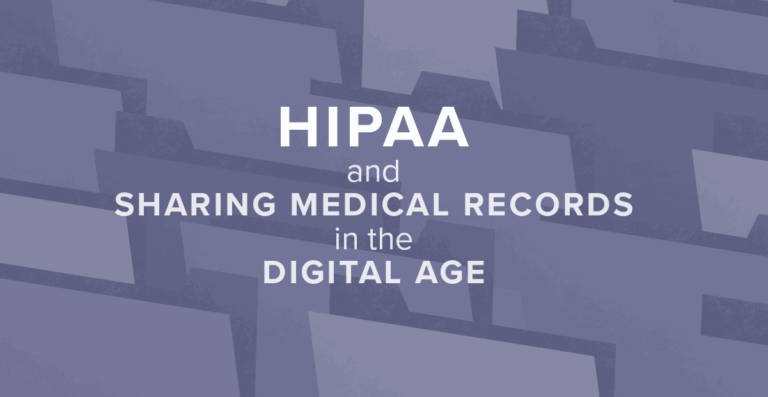Nurses and healthcare professionals have been adjusting their approach to patient privacy since HIPAA was passed in 1996. The Health Insurance Portability and Accountability Act stipulates when and how a patient’s medical information, including their health records, insurance plan, and medical bills, can be shared. The policy dramatically strengthened the patient’s right to control how their personal information is used and shared among different parties. As beneficial as these changes have been when it comes to patient privacy, HIPAA has also created challenges for healthcare workers as they continue dealing with these complex new procedures. Learn how healthcare privacy has changed and what this means for nurses.
The Digitization of Medical Health Records
The healthcare industry has been slow to adopt the digitization of medical health records with many hospitals and doctor’s offices still relying on stacks of manila folders. But EHR or electronic health records are becoming increasingly common throughout the industry. EHR systems make it much easier for doctors and nurses to share essential healthcare information with other parties, including insurance companies, third-party businesses, and other healthcare professionals, which improves efficiency and the flow of information.
Yet, digitization has also brought new considerations for healthcare privacy. If a nurse or doctor can share a patient’s healthcare information with the touch of a button, it’s easy to see how one misstep can lead to disaster. If a healthcare worker makes a mistake or is careless with this information, they could end up sharing this data with potentially thousands or millions of people. These technological changes have patients increasingly concerned with their right to privacy. With HIPPA in place, healthcare workers need to make sure they’re only sharing a patient’s information if it’s essential to their job.
The Rising Cost of HIPPA Regulations
Many in the healthcare industry have complained that HIPPA puts new financial burdens on hospitals and other healthcare centers. Facilities have had to spend millions of dollars training staff members on these new policies. They also have to add HIPAA officials and experts to the payroll in case a staff member needs guidance on how to handle a specific situation. If a patient’s records are mishandled, this HIPAA consultant will need to investigate what went wrong, so they can prevent the same incident from happening again.
Sharing pertinent medical information now comes with plenty of paperwork as nurses and healthcare workers deal with strict regulations regarding how a patient’s information may be handled and shared. It’s important for nurses to find ways to balance patient care with paperwork.
How Privacy Affects the Nursing Profession
Nurses are on the front lines of healthcare, advocating for patients and their rights. In addition to caring for patients and completing a range of tasks throughout the day, nurses must also help patients understand how their medical information is being used or shared and why. Nurses also need to familiarize themselves with HIPAA as they decide how to handle a patient’s information.
Despite these added responsibilities, nurses may not need to alter their approach to healthcare. Many nurses are accustomed to using common sense when it comes to patient privacy. Nurses know when it’s appropriate to share a patient’s information and it’s not. If a nurse receives an unusual request from a patient’s loved one or a third party, they can consult with a HIPAA professional in times of doubt.
Nurses and healthcare workers continue dealing with the changes brought on by HIPAA. Protecting patient privacy remains essential. Having these federal policies in place creates a common approach to patient privacy.
